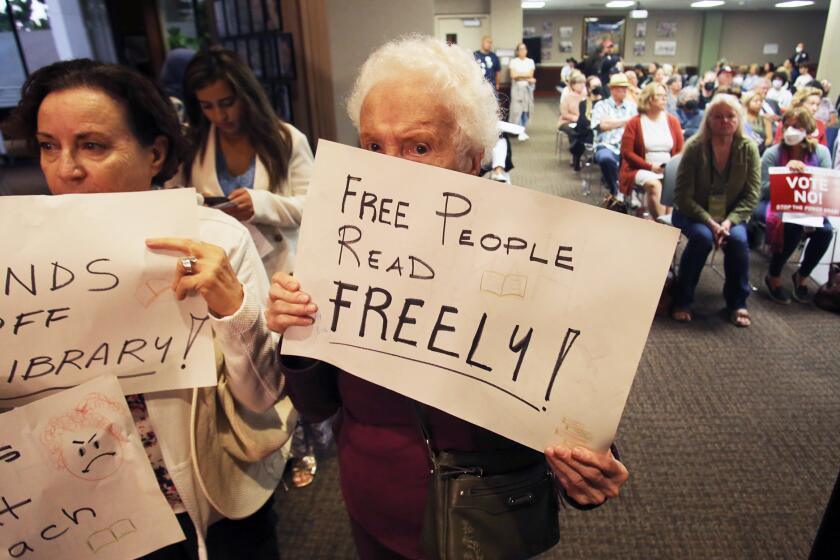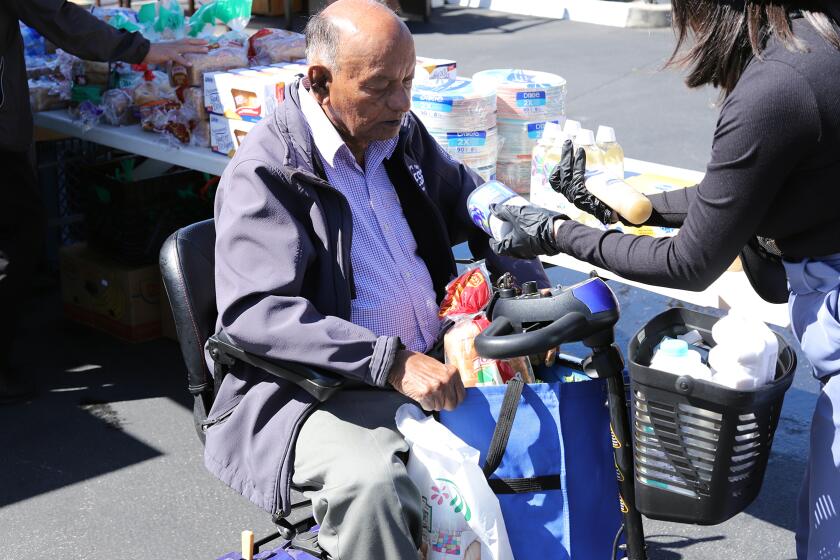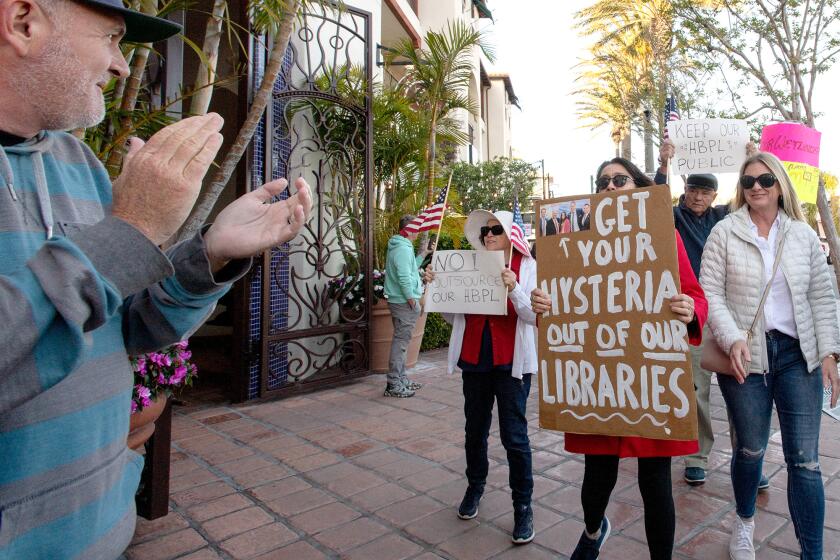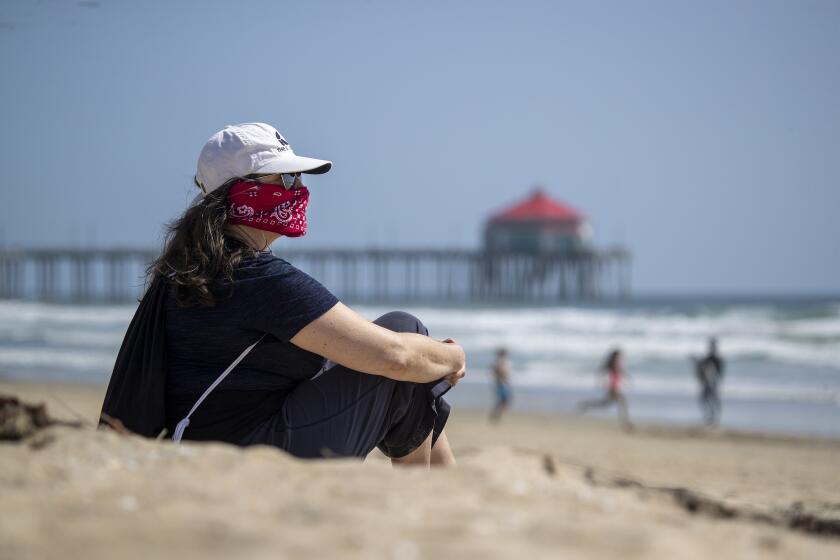Natural Perspectives: Live long and help the Earth prosper
For about 12 years now, Louann and I have been writing columns for these pages. We regret that this is our last. Presumably, the Independent will be going in a new direction. Unfortunately, the folks there have decided that we — and many other columnists here and at other community newspapers — will not be going along.
We wish all the best to you, our loyal readers. We have enjoyed sharing with you our personal triumphs and failures, our joys and heartbreaks, our deepest convictions and our wildest speculations over the past years. We have done our best to provide you with perspective on the natural world around us. We have railed against the damage that modern industrial society does to nature and to human beings.
We have advocated the highest possible level of protection for our beloved Bolsa Chica wetlands. We leave the paper content that the people of Huntington Beach appreciate this wonderful blessing that is in our midst.
Much the same can be said for the Huntington Beach wetlands, smaller and less controversial than Bolsa Chica, but also valuable and also still with us today because dedicated citizens banded together to protect a great asset.
Much the same also can be said for Shipley Nature Center and the other valuable natural habitat areas scattered throughout the rest of Huntington Central Park and elsewhere in the city.
But the preservation of these areas is never finished. It will be up to each succeeding generation to alertly guard against threats to areas like these. It would only take a vote of 4 to 3 on the Huntington Beach City Council for some of these areas to be converted to a parking lot. Any loss of a natural area is a permanent one. Our victories are temporary, but losses are forever.
Lou and I have offered our views on issues like air pollution, water pollution, global warming and the over-consumption of natural resources. For us here in Huntington Beach, an issue that can only become more acute in the future is water supply. Lou has justifiably bragged about the productivity of her garden, and I brag on her behalf that she produces all those fruits and vegetables (280 pounds so far this year, she tells me) while consuming less than half the average homeowner’s consumption of water per month.
As we drive the streets of this fair city, we see continuous change, mostly increases in its density. Commercial buildings get taller. And we see the city approving the construction of ever more apartments. Because our city is already built out to its edges and (thankfully) cannot expand in geographic coverage any further, our community is faced with the question of what kind of city we want this place to be in coming decades. As population increases (in California and around the world), there will be continued pressure to build more and more housing, schools, businesses and other amenities of life that people need. Will we allow more of these things here? Or will we ask that they be built elsewhere on more acreage of chaparral or desert or farmland? Not a pleasant choice.
Lou and I want to offer our thanks to the Amigos de Bolsa Chica, the Bolsa Chica Conservancy, the Bolsa Chica Land Trust, the Huntington Beach Wetlands Conservancy, the Friends of Shipley Nature Center, the Wetlands & Wildlife Care Center, the Ocean Outfall Group, the volunteers of the Golden West College Native Garden and the conservation clubs and associations at schools and churches throughout the city. Their work has been greatly rewarded by the environmental quality that our citizens enjoy today. And thanks, too, to each individual who knows that the practices of his or her daily life make all the difference between society in harmony with — or at war with — nature.
Now let me turn the column over to Lou for her last words.
Gee, Vic, you didn’t leave me much space. I wanted to close with a final update on our chickens, because I know that’s what people really want to hear about. Our two barred rock chicks, Peep and Cheep, have grown into fine-looking pullets. I just wish that they were as well behaved as they are good looking.
Because an opossum ate Cluck, and because Vic caught an opossum in the act of trying to grab another chick, I moved them to the enclosed coop and run with the big girls. Using my power tools, I constructed a series of perches for them in the run, as well as a dual-level platform. This gives the pullets plenty of room to avoid the adult hens, who will peck them if given a chance. They have been together about a month now and there are few squabbles.
However, Peep and Cheep have no idea what the straw nests inside the coop are for. They seem to think the coop is their playground. They spend much of the day inside the coop, destroying the nests by scratching all of the straw out of them. And in their vigorous play, they sometimes break an egg recently laid by Miss Hillary, our only currently laying hen. I hope that when the new girls begin laying in January that they will stop wrecking the nests.
Let me close by reminding you one last time that global climate change is real and is happening all around us. Weather has become worse, with drought and horrific storms across North America. Sadly, the alternating drought and severe storms of this past summer have resulted in decreased food production. You can expect higher prices and perhaps even reduced quantities of food next year. So for greater food security for your family, grow what you can at home. It’s a start.
And that is how we end. With a plea for a planet-saving beginning at your house. Plant a fruit tree. Grow a garden. Compost. Set up rain barrels. Conserve wherever and however you can. Thanks for reading.
VIC LEIPZIG and LOU MURRAY are Huntington Beach residents and environmentalists. They can be reached at Lmurrayphd@aol.com.
All the latest on Orange County from Orange County.
Get our free TimesOC newsletter.
You may occasionally receive promotional content from the Daily Pilot.



